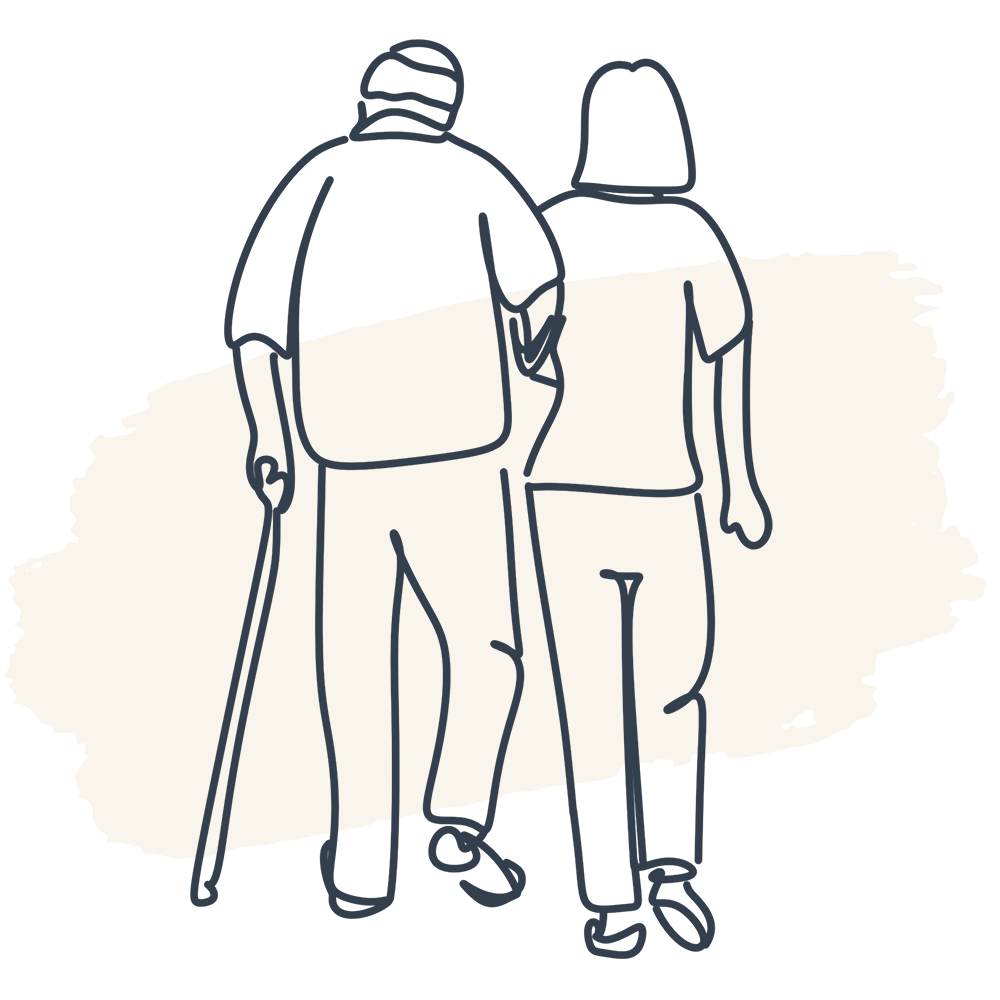Frailty is a progressive condition which can affect older adults, characterised by a decrease in physical strength and energy.
If your loved one is living with moderate or severe frailty, they are more likely to depend on you for help and need more support at home. Frailty can lead to a heightened vulnerability to other, sometimes minor, health or personal issues, such as a urine infection, an accident, a hospital admission, or another stressful event. Those affected by frailty are less able to bounce back from relatively small triggers or setbacks, and are more likely to become dependent on others for care and support. Recognising and understanding frailty can help you understand, plan, and provide appropriate care and support for your parent, friend, or family member living with frailty.
Adults living with moderate to severe frailty are more likely to need help with everyday activities and medical management, including health care appointments, medicines, and banking. They are also more likely to develop anxiety or depression, or experience a fall or an unplanned admission to hospital Below are some tips to help when caring for a loved one with frailty.
Disclaimer: These guides are not a substitute for medical advice – always seek professional help. Remember, healthcare professionals will not share information about a patient unless they have been permitted to do so.
How This Information Can Help You
Understanding Frailty
Gain insights into what frailty is, how it affects older adults and its common symptoms.
Identifying and Assessing Frailty
Learn about the key factors that may indicate frailty, including age, living situation, and certain health conditions.
Frequently Asked Questions
Address some of the common complications of frail such as falls, incontinence, delirium and multimorbidity
Managing Day-to-Day Challenges
Learn how to adapt care to the varying levels of frailty for daily care such as helping with medication and other daily tasks
Understanding Frailty
Frailty Frequently Asked Questions
Explore essential care tips and commonly asked questions about caring for a loved one with Frailty.




